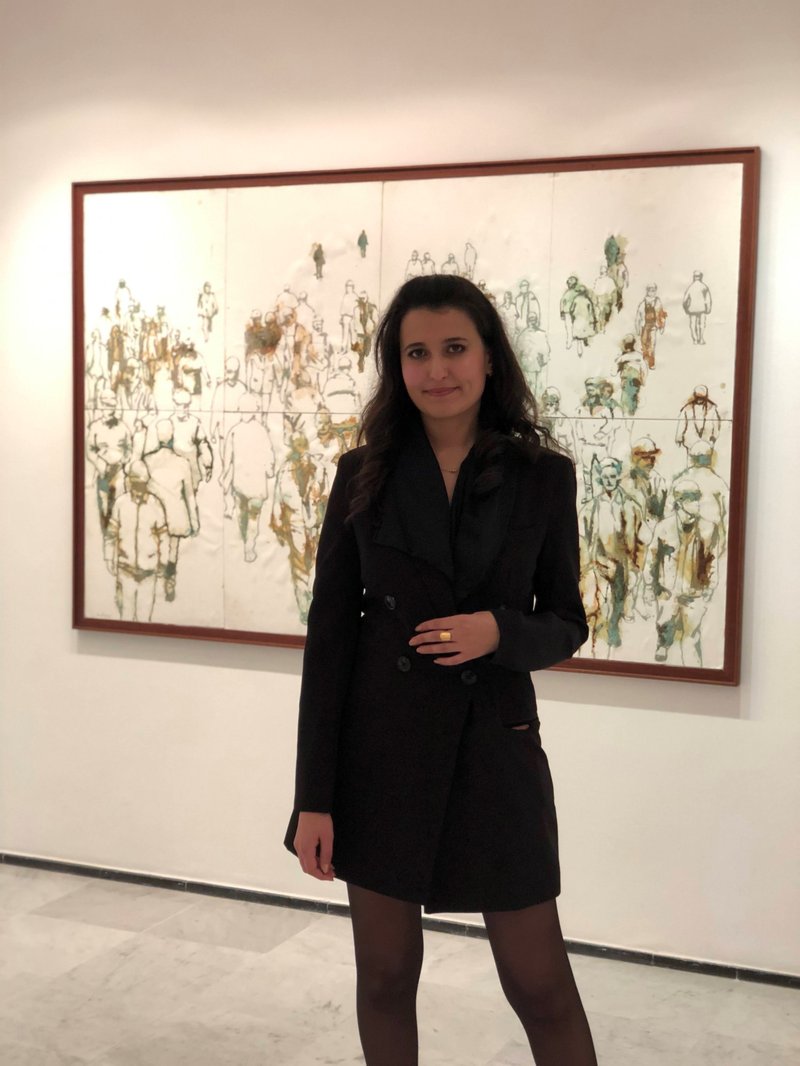Salima El Aissaoui

In 2021, 50 contemporary art curators, researchers, and museum professionals from 32 different countries were awarded support to attend the CIMAM 2021 Annual Conference, in-person and online.
For the first time, and thanks to the generous support of The Getty Foundation who sponsored the virtual platform, 27 grantees attended the conference online, while 23 attended onsite.
Launched in 2005, CIMAM’s Travel Grant Program is designed to foster cooperation and cultural exchange between contemporary art curators and museum directors in emerging and developing economies and their counterparts in other regions of the world.
Salima El Aissaoui's Conference Report
The CIMAM 2021 Annual Conference was a great opportunity for me to attend very interesting discussions around the urgent issues of climate change and xenophobia.
My feedback as a museum professional (cultural mediator) working in a state museum in an Arab, Amazigh, Mediterranean, African country, in a postcolonial context would be very complex. My perspective on these issues is, therefore, very much influenced by all these considerations.
In the institution where I work, we have not yet begun to develop thematic exhibitions with dedicated curators and an elaborate and critical discourse on social issues or reflections on sensitive and present-world topics, such as climate change. This can be explained by the fact that the museum practice in Morocco, especially in terms of art, is very young. All the focus today is towards the establishment of a certain common cultural identity (i.e. retrospectives of Moroccan artists, historical group exhibitions, etc.), coupled with an opening to the international. An opening, moreover, that does not often meet the ambitions of the informed public, eager to see exhibitions that are aware of the postcolonial context in which we live.
The actions taken are more subtle, i.e., integrating the discourse on minorities, visualizing the work of women artists, etc., within these historically based exhibitions, which may later prove to be more effective and constructive. Could it be a way of "transcending superficial tendencies of inclusion in order to cultivate a culture of real equity and equality and democracy and transparency" as wished by T.J. Demos when he talked about the absurdities of "model" western museum institutions concerning greenwashing?
Nevertheless, attending the different conferences allowed me to compare the preliminary work that is done today in my institution with that of other more experienced institutions. This meeting and the factual knowledge that comes from it are very important and open me to enormous possibilities of actions, methods, and strategies.
I can also return to two very important aspects: the fact that the conferences gave the floor to specialists in the subjects discussed: the respective conferences of Dipesh Chakrabarty and Maristella Svampa were very crucial to better understand the context in which all our artistic, curatorial, and museum activity is developed.
Each of the communications by Pelin Tan and Otobong Nkanga was very relevant to my situation and identity, as they discussed issues related to the environment from the global south.